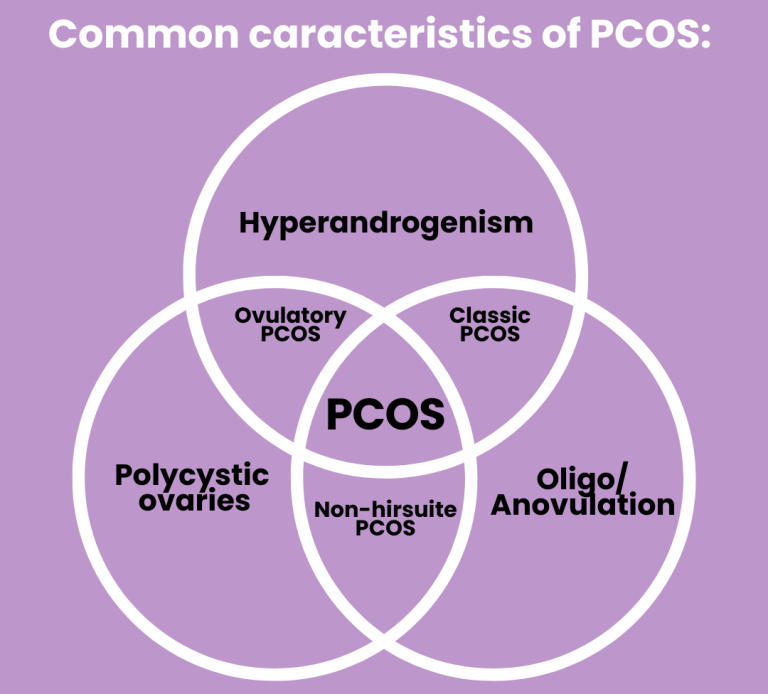WEIGHT LOSS WITH PCOS
Weight loss can be particularly challenging for individuals with Polycystic Ovary Syndrome (PCOS) due to its impact on metabolism and hormonal imbalances. However, with the right approach and support, significant progress is possible. Through tailored strategies addressing nutrition, exercise, and lifestyle modifications, we can navigate the complexities of PCOS and work towards achieving sustainable weight loss and improved overall health.and motivated professionals
There is a lot of misinformation out there on the internet that is not evidence-based, I know, it can be confusing 🙃
This article includes the main interventions based on the current scientific data about how to reduce symptoms and help with weight loss in women with PCOS.
PCOS is one of the most common hormonal disorders in women recently, and over the last couple of years, I have been working with several clients who are suffering from this condition, and we have achieved very good results.
It is a well-known fact that weight loss can improve symptoms; however, it can be harder to achieve. But it’s not impossible!
Just like in other weight loss situations, there is no one-size-fits-all approach, but applying the principles based on the individual’s circumstances can lead to very good results.
Understanding Polycystic Ovary Syndrome: Symptoms, causes, and management
Polycystic Ovary Syndrome (PCOS) is a complex condition that profoundly influences ovarian function, often leading to a myriad of symptoms that affect women's health and well-being. Recognizing the signs and understanding the diagnostic criteria are crucial steps in effectively managing this condition.
Symptoms of PCOS encompass a broad spectrum, with irregular or absent menstrual cycles being a prominent feature. Additionally, individuals with PCOS commonly exhibit elevated levels of testosterone, resulting in manifestations such as excessive facial hair growth (hirsutism). The presence of insulin resistance further complicates matters, potentially leading to metabolic disturbances and increased risk of diabetes.
Despite the prevalence of PCOS, pinpointing its exact cause remains a challenge.
However, according to the Rotterdam criteria, three main characteristics are associated with PCOS:
- hyperandrogenism
- oligo/anovulation
- polycystic ovaries.
Hyperandrogenism refers to elevated levels of male hormones, particularly testosterone, while oligo/anovulation pertains to irregular or absent menstrual cycles. Polycystic ovaries, characterized by enlarged ovaries containing numerous fluid-filled sacs surrounding the eggs, complete the trio of diagnostic criteria. It's important to note that the presence of at least two of these features is typically required for a PCOS diagnosis.
One crucial aspect emphasized by the Rotterdam criteria is that a single characteristic alone is insufficient to diagnose PCOS. For instance, an individual may have polycystic ovaries without exhibiting hyperandrogenism or experiencing irregular menstrual cycles, indicating the absence of PCOS.

Understanding these key characteristics and diagnostic criteria is essential for accurate diagnosis and appropriate management of PCOS. By recognizing the interconnectedness of symptoms and adopting a comprehensive approach to treatment, healthcare professionals can support individuals affected by this complex condition.
In conclusion, PCOS presents a multifaceted challenge that necessitates a nuanced understanding of its symptoms and diagnostic criteria. Through continued research, education, and advocacy, we can empower individuals with PCOS to navigate their health journey with confidence and resilience.
Empowering Lifestyle Changes: Managing PCOS through exercise, diet, and supplementation
While PCOS poses unique challenges, adopting lifestyle changes can significantly improve symptoms and enhance overall well-being. Incorporating regular exercise, maintaining a balanced diet, and utilizing targeted supplementation are key pillars in the management of PCOS.
Exercise stands as a cornerstone in PCOS management, offering myriad benefits beyond weight management. Engaging in regular physical activity not only aids in weight loss but also helps regulate menstrual cycles, reduce insulin resistance, and alleviate symptoms of hyperandrogenism. Both resistance training and High-Intensity Interval Training (HIIT) have shown promise in improving PCOS symptoms, making them valuable components of an exercise regimen.
Weight loss has emerged as a potent tool in reducing the severity of PCOS symptoms. Even modest weight reduction can lead to significant improvements in hormonal balance and menstrual regularity. Combining regular exercise with dietary modifications tailored to individual needs can yield sustainable weight loss outcomes and alleviate the burden of PCOS.
Dietary composition plays a crucial role in managing PCOS symptoms and supporting weight loss efforts. Emphasizing whole foods, rich in fiber, lean protein, and healthy fats, while minimizing processed foods and sugars, can help stabilize blood sugar levels and promote weight management.
Optimizing Nutrition for PCOS Management: Key Considerations and Interventions
Nutrition plays a pivotal role in managing Polycystic Ovary Syndrome (PCOS), offering a powerful tool for weight management and symptom alleviation. Let's explore key nutritional considerations and interventions to support individuals with PCOS.
Key Nutritional Considerations & Interventions:
The nutritional composition of the diet exerts significant effects on weight loss and PCOS symptom reduction. Several dietary approaches have been associated with positive outcomes in women with PCOS:
- MUFA-Enriched Diet for Greater Weight Loss: A diet rich in monounsaturated fatty acids (MUFAs) has been linked to greater weight loss in individuals with PCOS. Incorporating sources of MUFAs, such as olive oil, avocados, and nuts, can support weight management efforts and improve metabolic health.
- Low GI Carbohydrate Diet: A diet based on low glycemic index (GI) carbohydrate sources and lower overall carbohydrate intake has shown to improve insulin sensitivity and promote weight loss in women with PCOS. This dietary approach offers numerous benefits for women with PCOS, including improved menstrual regularity, enhanced quality of life, and greater reductions in total cholesterol, HDL-C, and fibrinogen levels. It helps stabilize blood sugar levels and may lead to greater reductions in insulin resistance, enhancing menstrual regularity and quality of life.

- High Protein Diet: Embracing a high protein diet can significantly contribute to weight loss in women with PCOS. Beyond its satiating effects, a high protein intake increases the thermic effect of food, thereby enhancing metabolism and facilitating weight loss. By preventing muscle loss, particularly important for women with PCOS who exhibit higher overnight protein oxidation, and promoting a positive body image, high protein diets can also improve psychological well-being and reduce symptoms of depression. Additionally, high protein diets have been associated with improvements in mood, self-esteem, and overall well-being.
Enhancing PCOS Management with Targeted Supplementation
Supplementation plays a complementary role in PCOS management, offering targeted support to address specific symptoms and improve overall health. Let's explore the benefits of key supplements for individuals with PCOS:
- Omega-3 Fatty Acids (EPA+DHA): Omega-3 fatty acids, particularly EPA (eicosapentaenoic acid) and DHA (docosahexaenoic acid), have been shown to offer a range of benefits for women with PCOS. Research suggests that supplementation with EPA+DHA can lead to improvements in the androgenic profile, insulin resistance, and blood lipid profile. By reducing inflammation and promoting hormonal balance, Omega-3 supplementation may help alleviate symptoms associated with PCOS and support metabolic health.
- Vitamin D3: Low levels of Vitamin D have been associated with various metabolic disturbances, including increased fasting glucose and insulin levels, reduced insulin sensitivity, and an increased prevalence of Type 2 Diabetes. Given the high prevalence of Vitamin D deficiency in individuals with PCOS, supplementation with Vitamin D3 is often recommended. By optimizing Vitamin D levels, individuals can support insulin sensitivity, enhance glucose metabolism, and reduce the risk of metabolic complications associated with PCOS. It's essential for individuals with PCOS to undergo testing by their healthcare provider to assess their Vitamin D status and determine appropriate supplementation.
- Inositol: Inositol, a naturally occurring compound similar to B-vitamins, has garnered attention for its potential benefits in PCOS management. Research suggests that Inositol supplementation can improve insulin sensitivity, ovarian function, and menstrual regularity in women with PCOS. Additionally, Inositol has been associated with improvements in weight loss and blood lipid profiles, further supporting its role as a valuable supplement for PCOS management. By addressing underlying metabolic imbalances, Inositol supplementation may help alleviate symptoms and improve overall health outcomes in individuals with PCOS.
In conclusion, managing Polycystic Ovary Syndrome (PCOS) involves a multifaceted approach that encompasses lifestyle modifications, dietary changes, and targeted supplementation. By empowering individuals with knowledge and support, we can effectively reduce symptoms and improve quality of life. If you are struggling with PCOS, know that you are not alone.
I am here to help you navigate your journey towards better health.
Here are some success stories from my clients who I've had the privilege of helping overcome their PCOS symptoms:


ALL CONTENTS © FIT BY D 2024. ALL RIGHTS RESERVED..
We need your consent to load the translations
We use a third-party service to translate the website content that may collect data about your activity. Please review the details in the privacy policy and accept the service to view the translations.
